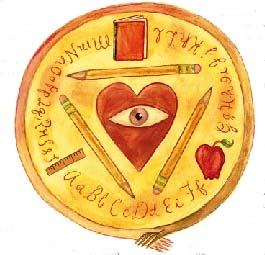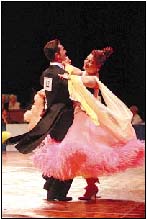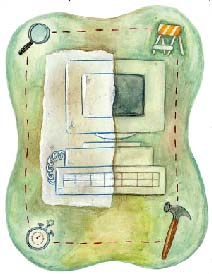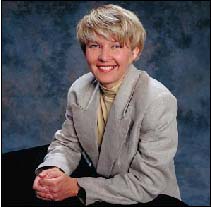By Shea N. Cutler
The common eye,” Mark Twain once wrote, “sees only the outside of things, and judges by that, but the seeing eye pierces through and reads the heart and the soul, finding there capacities which the outside didn’t indicate or promise, and which the other kind couldn’t detect.”
To look into the eyes of a child and see in them a hope for the future is a talent which one BYU professor is putting to action. James Birrell, an assistant elementary education professor, has seen the 25,670 minority children in Utah’s elementary schools and discovered that these children are often not realizing their full potential because they are misunderstood. He has begun the Urban Teacher Certification Program, in collaboration with the University of Utah, for people who already have a bachelor’s degree. Participants in the program will be able to certify to teach in one to one and a half years.
 “The minority populations in Utah are increasing,” said Birrell, “and we simply don’t have a population of teachers who understand the challenges that children in poverty live with and how those spill into the classrooms and aVect learning. We need to prepare teachers who have the ability and the vision to size up the problems and not misdiagnose them.”
“The minority populations in Utah are increasing,” said Birrell, “and we simply don’t have a population of teachers who understand the challenges that children in poverty live with and how those spill into the classrooms and aVect learning. We need to prepare teachers who have the ability and the vision to size up the problems and not misdiagnose them.”
The program, which begins in July, will run on two diVerent tracks, certifying the graduates to teach in Utah and approximately 35 other states. One track, the intensive one-year program, will meet five days a week for eight hours each day and, Birrell said, is much “like taking a drink of water from a fire hose.” The other track, called the modular program, takes a year and a half to certify and meets two days each week.
“The modular program will make it possible to allow more people to take a more reasonable and more balanced approach at getting into the program,” Birrell said.
For both tracks most of the teaching will be done in the classrooms of the six participating Salt Lake City elementary schools so they can be used as laboratories for demonstration teaching. The subjects to be taught include the elementary content of mathematics, science, language arts, social issues, and classroom management.
The program is open to approximately 20 people for the intensive track and 40 for the modular track. It is oVered through BYU’s Salt Lake Center and will be taught by both U of U and BYU professors.
“In so far as I know,” Birrell said, “I am not aware of any project that has been approached wholly and specifically in this way. To my knowledge this is the first time anything has specifically focused on this population.”
And it is a population that is in desperate need of attention. According to Birrell, there are approximately 50 schools between Ogden and Salt Lake City that have high-impact populations of at-risk youth. Of the six participating schools, one is 50 percent minority, two are 60 percent, and the other three are 95 percent minority. These children are often culturally misinterpreted, leading to the poor performance of both teachers and students, and they usually get the left-over books and supplies, he explained.
But Birrell wants to make sure they don’t get the left-over teachers. He said they are looking for people who can demonstrate the ability to be eVective teachers and the resilience and character required to teach urban children.
“Some of our best teachers in the urban environment are mature people, some of whom have retired from other careers,” he said.
“We need the best teachers in these schools,” he insisted. “These kids deserve the best teachers we can give them.”
Birrell said that as he has traveled through the urban schools around the country he has seen worn out teachers, buildings in disarray, and teachers who are trying to instruct with no materials. In April, Birrell took some local teachers to the schools in Washington, D.C., where BYU students are participating in an urban student teaching program.
“One of the teachers picked up a social studies book and read it, and saw the words: ‘One day man will walk on the moon.’ Now, that’s the books these kids are learning from. These are America’s children; these are America’s future. Is this the best America can do for these kids?”
Birrell thinks America can do better, and that BYU can become part of that process.
“So many people right here in Utah, and in academia, think we’re just this little clique church that’s not concerned about anybody but our own,” he said. “So through our eVorts the world is going to begin to find out that BYU is about global communities and about everyone, that we are concerned about preparing teachers for all of God’s children.”
For more information about the Urban Teacher Certification Program, call the BYU Salt Lake Center at (801) 273-3434.









